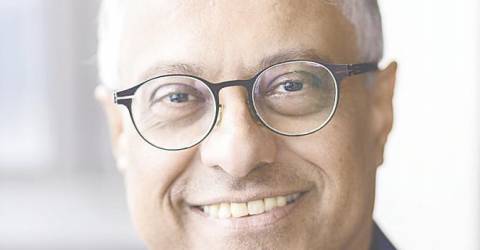‘Smarter’ tax policies can boost EPF savings
1 day ago
KUALA LUMPUR: The challenge of ensuring adequate retirement savings for Malaysians does not lie in the introduction of new financial products but in refining existing frameworks.
Manulife Investment Management (M) Bhd licensed financial planner Rajen Devadason said that rather than developing additional retirement schemes, most of the financial planning community and other investment industry players agree that well-structured – and significantly larger – tax incentives could be the key to encouraging Malaysians to maximise their Employees Provident Fund (EPF) contributions.
He said there are also other established options that Malaysians can explore such as Private Retirement Schemes (PRS) and unit trust (UT) funds.
“By enhancing these incentives, policymakers could effectively nudge individuals towards more disciplined saving and investment habits, ensuring long-term financial security without the need for complex new solutions.
“This approach prioritises simplicity and accessibility, leveraging tools already available in the market while addressing the behavioural barriers that often hinder retirement planning.
“The focus, then, should be on making these mechanisms more attractive through strategic fiscal policies – a move that could benefit Malaysians across all income levels,” he told SunBiz.
Devadason pointed out that with the increasing life expectancy in Malaysia, retirement plans must adapt to prevent seniors from outliving their savings.
“The clear solution is raising the retirement age gradually, in my opinion, first to 65 by 2035, then to 68-70 by 2050.
“This change is urgent. At just 60 years, Malaysia’s current retirement age is among the lowest regionally and globally, despite our rapidly ageing population.
“A phased increase would give workers more years to save while maintaining economic productivity – a necessary adjustment for our nation’s future,” he said.
Devadason, who is also the CEO of corporate mentoring consultancy firm RD WealthCreation Sdn Bhd, pointed out that there were four rounds of EPF withdrawals permitted during the Covid-19 years by the then Perikatan Nasional-led government.
Following these four initiatives – introduced to assist millions of Malaysians in covering basic necessities during severe economic hardship – more than 6 million EPF account holders were left with less than RM10,000 in savings.
This came from a total of roughly 15 million EPF accounts, of which only about 8 million were active at the time.
Of that number, more than half, or over 3 million EPF account holders, had less than RM1,000.
“A key takeaway from that set of data is that for more than 75% of EPF’s active contributors in the early 2020s, their basic earnings were too low to build up sizable EPF balances.
“EPF itself is a very well-run national superannuation fund, and it is only because of EPF that those who use it wisely are well on their way to adequately funding their future retirement needs.
“Tragically, those ‘EPF-winners’ are in the minority,” Devadason said.
When asked to what extent the current state of financial literacy in Malaysia contributes to inadequate retirement planning, Devadason said while financial literacy in Malaysia has significantly improved over the past 25 years – thanks to initiatives by Bank Negara’s AKPK, the Securities Commission’s SIDC, and FPAM – more must be done.
“The next critical step is embedding personal finance education at every stage of schooling, from primary to tertiary levels.
“Children should learn early the importance of budgeting and the risks of debt – particularly the dangers of compound interest when borrowing.
“With predatory lending practices such as Buy Now Pay Later (BNPL) schemes becoming increasingly widespread, financial education is no longer optional; it’s essential for safeguarding future generations,” he said.
Touching on how existing government policies including race-based preferences affect long-term economic growth, Devadason said bad government policies have resulted in the creation of a massive entitlement mentality amongst their beneficiaries and a growing sense of despair amongst those who do not qualify for them.
“Malaysia has lost its way largely because the basic idea of meritocracy has been discarded for too long.
“This has led to our government ministries and even parliament not being populated by our brightest people, regardless of race or religion.
“All we can do is hope that our politicians do the right thing and put in place incentives such as tax breaks for unit trust investments and higher tax relief limits for insurance coverage to nudge our smartest people in the right direction.
“Those who continue to believe that ‘the government should take care of them’ will end up being economic losers.
“We need to drive home the importance of personal responsibility and nurture a work ethic tied to personal responsibility,” he said.
...Read the fullstory
It's better on the More. News app
✅ It’s fast
✅ It’s easy to use
✅ It’s free








